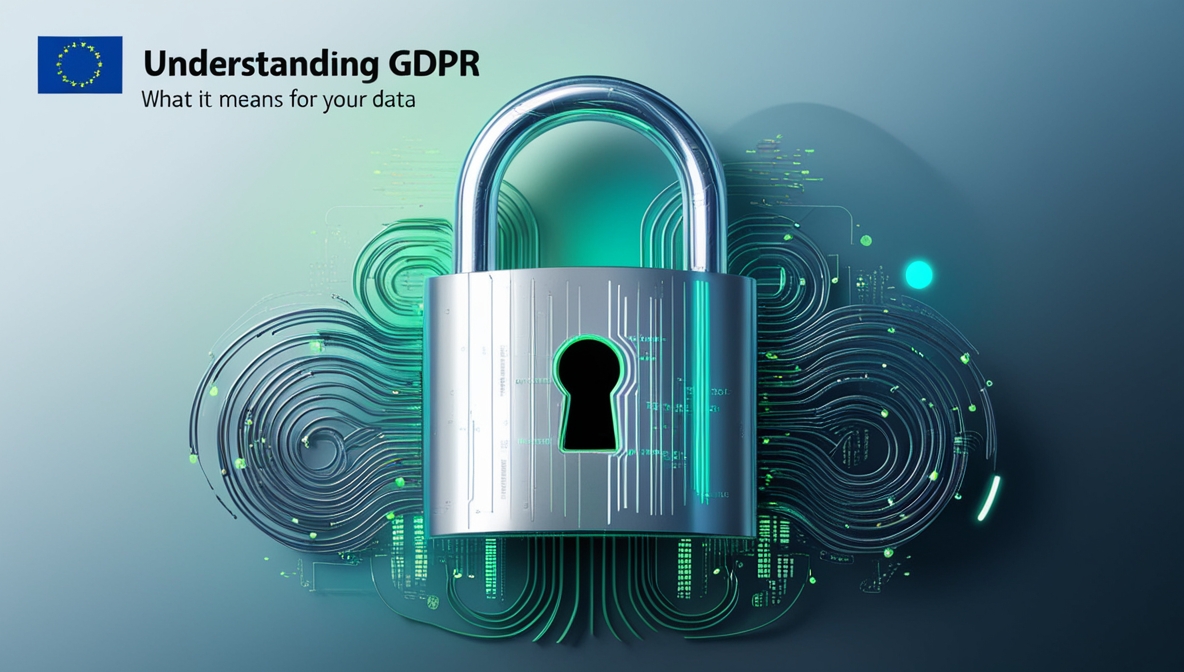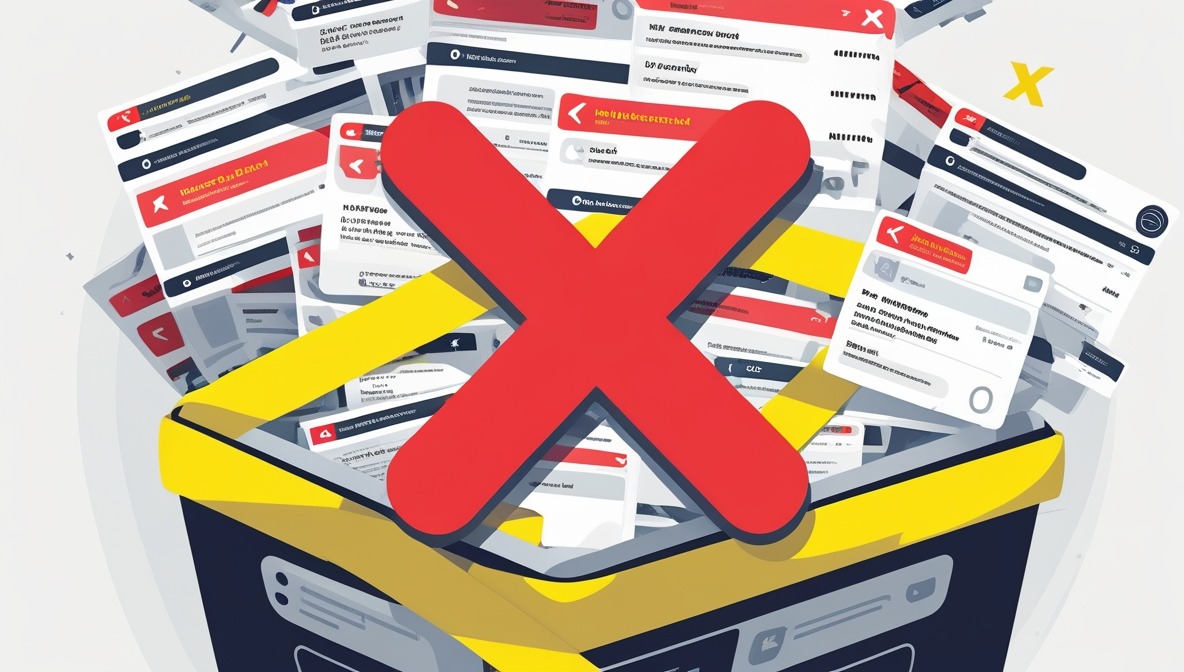Understanding GDPR: What It Means for Your Data
The General Data Protection Regulation (GDPR) transformed the way businesses handle personal data. It grants individuals more control over their personal information while placing stringent requirements on organizations that collect or process it. Whether you’re a consumer or a business, GDPR is pivotal in shaping how your personal data is managed, used, and protected.
What is GDPR?
GDPR is a comprehensive regulation that applies to any organization processing the personal data of individuals residing in the European Union (EU). It doesn’t matter if the company is located in the EU or not; as long as it handles the data of EU citizens, it must comply with GDPR.
In simple terms, GDPR grants individuals the right to know what data is being collected, how it’s used, and who has access to it. It also ensures that organizations protect this data from unauthorized access and breaches. Failure to comply can lead to significant fines, reinforcing the importance of robust data management systems.
The Seven Key Principles of GDPR
GDPR’s foundation rests on seven key principles that shape data handling and processing practices. Each principle plays a role in ensuring that personal data is treated with the utmost care and respect.
- Lawfulness, Fairness, and Transparency
Data must be processed legally, fairly, and in a transparent way. Organizations must be clear with individuals about why they are collecting their data and how they will use it. This means no hidden agendas or confusing jargon. - Purpose Limitation
The data collected should only be used for a specified purpose. If an organization collects data for one reason, they cannot suddenly use it for something else without informing the individual and receiving further consent. - Data Minimization
Only the necessary data should be collected. This principle ensures that organizations don’t gather excessive information that serves no real purpose. - Accuracy
Data must be accurate and kept up to date. Inaccurate or outdated information should be corrected promptly. If there are errors in personal data, individuals have the right to request corrections. - Storage Limitation
Organizations should not keep personal data longer than necessary. This helps prevent data from becoming outdated or irrelevant. Once the data has served its purpose, it should be securely deleted. - Integrity and Confidentiality
Data must be protected from unauthorized access, breaches, and leaks. This includes implementing robust security measures to safeguard personal information. One simple yet effective way to enhance data protection is by creating strong passwords for accessing sensitive systems and data. - Accountability
Organizations must be able to prove their compliance with GDPR. This means having documentation, policies, and practices in place that demonstrate they are adhering to the principles of the regulation.
Individual Rights Under GDPR
GDPR isn’t just about what organizations must do—it also focuses on empowering individuals by giving them several rights over their data.
- Right to Access
Individuals have the right to know if an organization holds their personal data and how it’s being used. They can request a copy of their data, which must be provided free of charge within a reasonable timeframe. - Right to Rectification
If the data held is inaccurate or incomplete, individuals have the right to request a correction. This ensures that their personal data remains accurate and up to date. - Right to Erasure
Also known as the “right to be forgotten,” individuals can request the deletion of their personal data under certain conditions. If the data is no longer necessary for the original purpose or if consent has been withdrawn, the individual can request its removal. - Right to Data Portability
This right allows individuals to obtain their data in a structured, commonly used format and transfer it to another service provider. It’s especially relevant for situations where individuals wish to switch services or providers. - Right to Object
Individuals can object to the processing of their personal data in certain situations. For instance, they may object if their data is being used for direct marketing purposes.
These rights ensure that individuals remain in control of their personal information, reinforcing the purpose of GDPR.
Compliance for Businesses: What Does It Mean?
For businesses, GDPR brings a set of responsibilities and obligations. Failure to comply with the regulation can lead to heavy penalties, so it’s essential to understand the necessary steps to align with GDPR.
1. Obtaining Consent
Consent under GDPR must be explicit. Organizations cannot rely on pre-ticked boxes or vague terms. Consent must be:
- Freely given
- Specific
- Informed
- Unambiguous
This means organizations need to be transparent about how personal data will be used and give individuals the ability to withdraw consent at any time.
2. Data Breach Notification
If a data breach occurs, organizations must notify the relevant supervisory authority within 72 hours of becoming aware of the breach. This notification must include the nature of the breach, the categories and number of individuals affected, and the actions being taken to address the breach.
In cases where the breach poses a high risk to the rights and freedoms of individuals, those affected must also be informed.
Utilizing data encryption tools is a critical way to ensure that data remains secure and unreadable to unauthorized parties, especially in the case of a breach.
3. Data Protection Officers (DPO)
Certain organizations may be required to appoint a Data Protection Officer (DPO) to oversee their GDPR compliance efforts. A DPO is responsible for ensuring that an organization adheres to GDPR guidelines and acts as a point of contact for supervisory authorities.
Organizations that process large amounts of personal data or engage in activities that require regular and systematic monitoring of individuals are likely to need a DPO.
The High Stakes of Non-Compliance
Non-compliance with GDPR can lead to substantial penalties. The fines imposed can be as high as €20 million or 4% of an organization’s global annual turnover, whichever is higher. This serves as a strong deterrent for organizations that may be tempted to cut corners on data protection.
However, the fines aren’t just about punishment; they’re about ensuring that organizations treat personal data with the respect it deserves. Failing to comply with GDPR not only results in financial loss but also damages an organization’s reputation and customer trust.
Building Trust Through GDPR Compliance
While GDPR may seem like a complex regulation to navigate, it’s a powerful tool for building trust between organizations and their customers. By demonstrating compliance with GDPR, businesses can show that they take data protection seriously, which can enhance customer loyalty and trust.
Organizations that adopt GDPR principles don’t just avoid fines—they build a stronger, more transparent relationship with their customers. In an age where personal data is increasingly valuable, demonstrating a commitment to privacy is a competitive advantage.
Conclusion
GDPR is more than just a legal requirement—it’s a shift towards greater accountability, transparency, and respect for individual rights. For individuals, it means more control over their personal data. For organizations, it demands a commitment to responsible data management and robust security practices. The impact of GDPR reaches far beyond the borders of the EU, influencing how businesses worldwide handle personal data and shaping the future of data privacy.












Post Comment